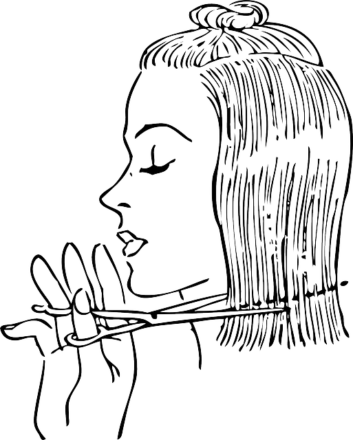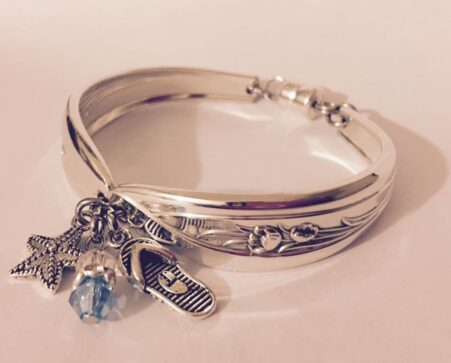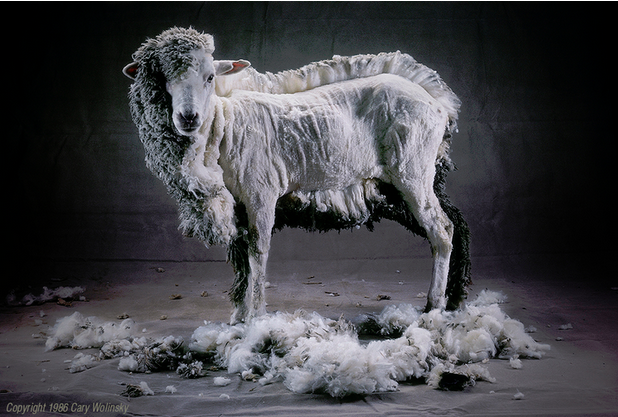We have been taught that long, uncut hair on a woman is a symbol of submission. These teachings are taken from 1 Cor 11:1-16. I am going to demonstrate that what is said to be a matter of submission is often actually a matter of control. It seems unreal that something that is taught to be a matter of submission becomes a matter of control and it is interesting how that happens. To demonstrate this, today I am going to take some quotes from one of the most popular of the hair books in Oneness Pentecostalism, Power Before the Throne by Ruth Rieder (Harvey).
There is a lot that could be written and said here but I want to hone in on a few quotes: “We can actually open our homes for evil spirits to come in if we are in rebellion. Your uncut hair brings protection to the entire family. My sister related a story to me of a young minister’s wife in the Dominican Republic. Her husband was a very promising young man in the Bible School, an exceptional preacher. My sister and her husband consistently taught on holiness in the Bible School throughout the work there. This young woman had long hair, but she persisted in trimming it despite what was taught. She opened her home for an invasion of the enemy because she lifted the covering through her disobedience. Before long, her husband fell into adultery with a girl in their neighborhood. Their lives were shattered, and their ministry was completely ruined. The spirit of vanity had caused her to become more concerned about the appearance of her split ends than about her obedience to God.” (Pg 68-69)
So let’s look at this a little closer. The idea behind uncut hair is supposed to be submission but what it ends up being is about control. The message is this: Women can control whether evil spirits come into their homes with uncut hair. Women can keep their husbands from committing adultery with uncut hair. If evil spirits enter your home and you have cut hair, it’s your fault. You can control all these things, simply by having uncut hair.
“Can our husband’s hearts safely trust in us to guard the glory and to insure divine protection for our family so that no wicked spirit can enter in to spoil us? What an awesome responsibility, yet what a tremendous privilege that God has entrusted to the woman.” (pg 69) So, the idea is that women insure divine protection to the home by their own choice of whether or not to cut their hair and that the husbands and families are reliant upon their wives for this divine protection. This is not about submission. It’s about control.
“…This lady’s son was in a very serious car accident…this frantic mother…reminded God of how a scissors never touched her hair……the doctors came back, expecting to see a young man who was possibly dead. Instead they found he had regained consciousness and was responding…..His mother had guarded the glory and had power on her head because of the angels.” (pg 72-73)
The message here is that you can have some amount of control over health and sins of others if you simply do not cut your hair. Instead of having faith in God no matter what our circumstances are, women are taught that if they do not cut their hair, they have “power”….”power before the throne”….”power on her head because of the angels”….. Whatever the verses in 1 Cor. 11 mean, I don’t think they mean that if you don’t cut your hair (which is never mentioned in 1 Cor. 11, by the way) that you can control whether your husband has affairs or whether your children recover after accidents. Submission does not mean control and the hair message is about control demonstrated by the examples shown. This message of control can be very appealing to women, and is also convenient for men, because if their wives believe that the husband’s behavior is in the wife’s control, men don’t have to take responsibility for their own behavior. This is a very co-dependent way of thinking and fits right into dysfunctional relationships.
I have provided photos of four pages. Page 68, page 69, page 72, page 73.
(Written for the Facebook group Breaking Out.)
Getting Out the Old Books: The Literal Word by M.D. Treece
Getting Out the Old Books: Guardians of His Glory by Gary & Linda Reed
Getting Out the Old Books: David F. Gray
Getting Out the Old Books: Joy Haney
Getting Out The Old Books: Larry L. Booker
Getting Out the Old Books: Power Before the Throne
Getting Out the Newer Books: Wholly Holy: The Vital Role of Visible Devotion
Search For Truth On Holiness
********
Shop at our Amazon store! As an Amazon Influencer, this website earns from qualifying purchases.




